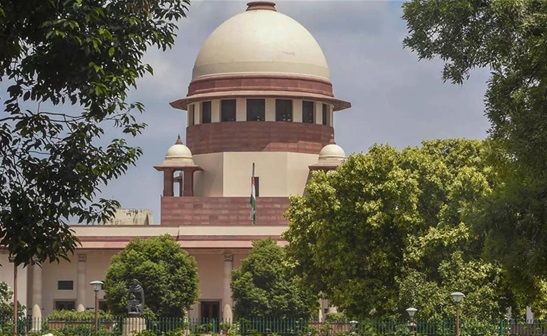Why in the NEWS?
- The Supreme Court, while deciding on Tamil Nadu's challenge, said that under Article 200 the Governor is required to give reasons to the state for not giving approval to the bills.

Key Points:
- Tamil Nadu had sought justice from the Supreme Court over the non-approval of several bills by its governor and keeping them pending for a long time.
- The state argued that the delay in decision-making by the governor on the bills adversely affects the functioning of the state government and the interests of the citizens.
What will you read next in this topic?
- Role of Governor in the Constitution of India: Powers and Responsibilities under Article 200
- Options of Governor under Article 200:
- Discretionary powers of the Governor:
- Tamil Nadu case: Governor's delay in assent and constitutional challenge
Role of Governor in the Constitution of India: Powers and Responsibilities under Article 200
Role of Governor in the Constitution
- The role of the Governor in the Constitution of India is extremely important, especially in his signing or giving assent to the bills passed by the state assembly.
- This function of the Governor comes under constitutional and democratic processes.
Importance of Article 200
- The powers of the Governor are clearly defined in Article 200.
- Under this article, the Governor has the power to decide on the bills passed by the state assembly.
Right to decide on bills
- The Governor has the power to give or not give assent to the bills.
- He can implement it only in accordance with the terms and conditions laid down under the Constitution.
Limitations of Governor's powers
- The Governor has the power to give assent to the bill, but his power should be within the limits prescribed by the Constitution. The Governor exercises this power judiciously.
Delay or refusal to give assent
- If the governor delays or refuses his assent to a bill, he is required to explain the reasons for it.
Requirement to give reasons to the state
- According to Article 200 of the Constitution, if the governor does not give or delays assent to a bill, he is required to explain to the state why this decision was taken.
Supreme Court's view
- Recently, the Supreme Court made it clear that the governor must maintain transparency in taking decisions on bills and must inform the state about the reasons for this decision.
Constitutional responsibility
- It is the responsibility of the governor to discharge his role in accordance with the provisions of the Constitution and ensure that the decision taken by him is part of the democratic and constitutional process.
Options of Governor under Article 200:
Assent:
- The Governor has the power to give assent to the bill, which makes the bill a law and comes into force in the state.
- This option is usually chosen when the Governor does not have any constitutional or other controversial situation.
Returning the Bill:
- The Governor also has the power to send the bill back to the Assembly.
- If the Governor feels that the bill needs reconsideration or some amendments should be made, he can send it back to the Assembly.
Referring the Bill to the President:
- If the Governor feels that the bill is controversial constitutionally or for other serious reasons, he can send that bill to the President.
- This option is used when the Governor has strong doubts against the bill.
Discretionary powers of the Governor:
Importance of Discretionary Powers:
- Justice Pardiwala clarified that the discretionary powers of the Governor cannot override the main provisions of the Constitution.
- He believed that the discretion given to the Governor cannot be used against the Constitution and the actions of the legislature.
Inherent Powers and Discretion:
- The Justice took note of the argument of the Attorney General and said that the Governor has inherent powers, but these powers cannot go against his discretion.
- This implies that the discretion of the Governor must be exercised in accordance with the basic concepts of the Constitution.
Primacy of the Constitution:
- Justice Pardiwala emphasized that inherent powers cannot negate the main constitutional provisions, and the discretion of the Governor must be in accordance with the directives and obligations of the Constitution.
- This confirms that the discretion of the Governor has been limited by the Constitution, and it must be exercised within the constitutional limits.
Tamil Nadu case: Governor's delay in assent and constitutional challenge
- The Tamil Nadu government had challenged the decision of Governor R N Ravi not to give assent to some bills and send some to the President.
- Controversies have arisen in Tamil Nadu over the delay in assent to bills by the Governor.
- The state government alleged that the Governor is deliberately delaying assent to bills, thereby affecting administrative work.
- The state government says that the Governor's job is not just to formally give assent to bills.
- The Governor should not interfere in the policies and schemes of the state, as this violates the rights of the state.
|
Q. According to Article 200, which of the following options is not available to the Governor?
(a) Approving the bill
(b) Sending the bill back to the Assembly
(c) Sending the bill to the President
(d) Directly declaring the bill unconstitutional
|



